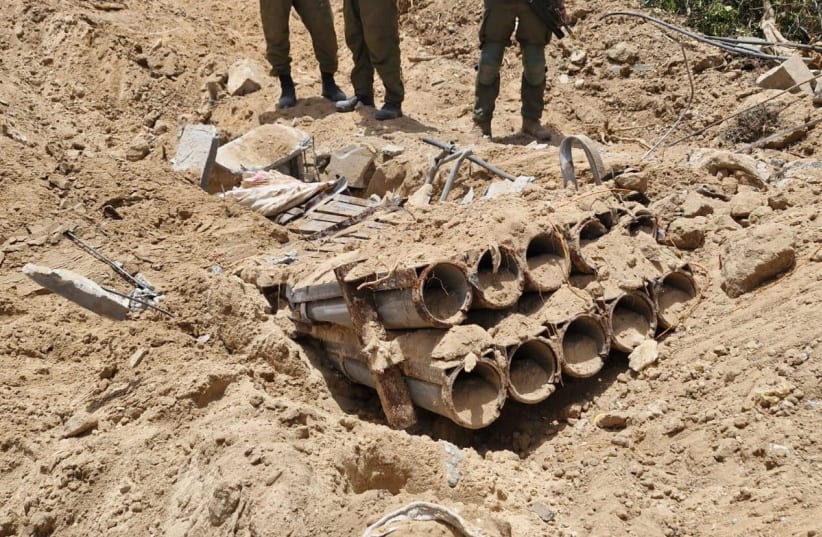Reports from Gaza indicate that residents of Shejaia in northern Gaza are fleeing a possible new IDF advance. The locals have posted footage of what they say are airstrikes and fighting. IDF spokesperson for Arabic media, Lt. Col. Avichay Adraee, also posted on X, formerly known as Twitter, a map calling on people in Shejaia to evacuate south along Salah Al-Din Street.
Shejaia was the focus of IDF operations back in December. It has historically been a center of Hamas activity. When the IDF went into Shejaia in December, there was a reckoning to be had. The commander of the Golani’s 13th Battalion, Col. Tomer Grinberg was killed in fighting in Shejaia in mid-December.
His unit had already taken heavy losses on October 7 when it was one of several understrength battalions on the border facing the Hamas onslaught.
The neighborhood was also the scene of a difficult battle in the 2014 war in which Golani suffered casualties when deployed in an aging M113 armored personnel carrier.
Therefore, any return to this neighborhood has layers of significance. It’s also not the only area in northern Gaza the IDF has returned to. The IDF has also returned to Zaytun several times to clear it of terrorists. The IDF went into Shifa Hospital twice, once at the beginning of the war and again in March. In May, the IDF went back into Jabalya for the second time for a three-week battle in which the bodies of seven hostages were found.
And that’s not all. Shati camp and Beit Hanoun also require more targeted raids. The IDF also continues to carry out airstrikes in northern Gaza, in areas such as Beit Lahiya and Tuffah.
The overall picture is of a northern Gaza in which Hamas continues to operate and has forces. It has weapons, and it also has areas that it apparently has kept to itself. This includes some areas of Gaza City, including the old neighborhoods.
The initial battles in northern Gaza in November and December were aimed at defeating the dozen Hamas battalions in the north. However, once they were beaten, Hamas divided them into smaller cells of three to five men. The IDF has returned to kind of sandpaper those remainders down. What that means is that with each pass the IDF uses less forces, and Hamas has less fighters.
There are diminishing returns here as well. Because in the beginning the fighting was heavy and a lot of buildings were destroyed.
For instance, the Paratroopers Brigade in mid-December, “demolished more than 100 buildings used by Hamas in the area, as well as located dozens of tunnel shafts, and arrested many operatives who had surrendered, among them a Hamas company commander and terrorists who participated in the October 7 massacres,” the IDF said at the time. Nowadays, the IDF is more precise, and less firepower is often used.
Repeat failure or successful new tactic?
The overall question the Shejaia experience raises is whether this will become another Jabalya or if more will be accomplished. With talk circulating of the IDF reducing the intensity of operations even more in Gaza and wrapping up the Rafah operation, it remains unclear if the large raids will continue.
It also remains unclear what may happen in central Gaza, where Hamas continues to operate in strength. Reports that Hamas was able to move forces out of Rafah and booby-trap homes and then wait illustrate it is playing a kind of “cup game” in Gaza, moving from place to place one step ahead of the IDF.
Hamas also continues to claim numerous attacks along with other terror groups, targeting IDF forces. Although most attacks are not successful, it shows it still has manpower. It may have taken heavy losses of ten thousand or fifteen thousand fighters, but it has likely recruited more. This will continue to present a challenge.

